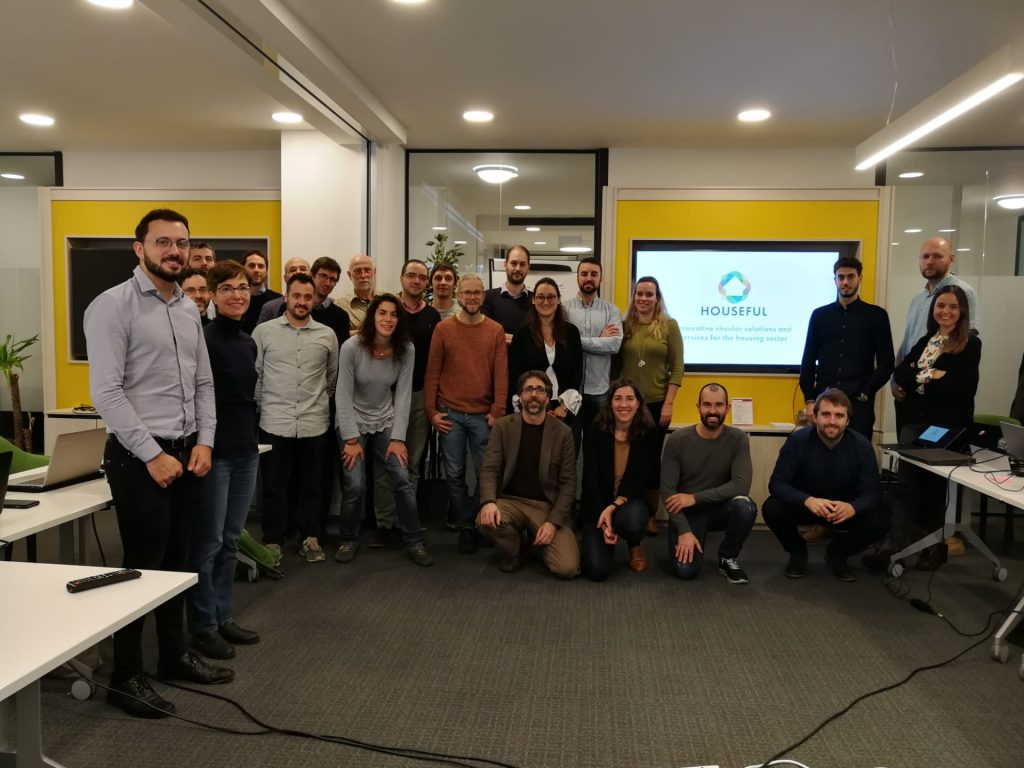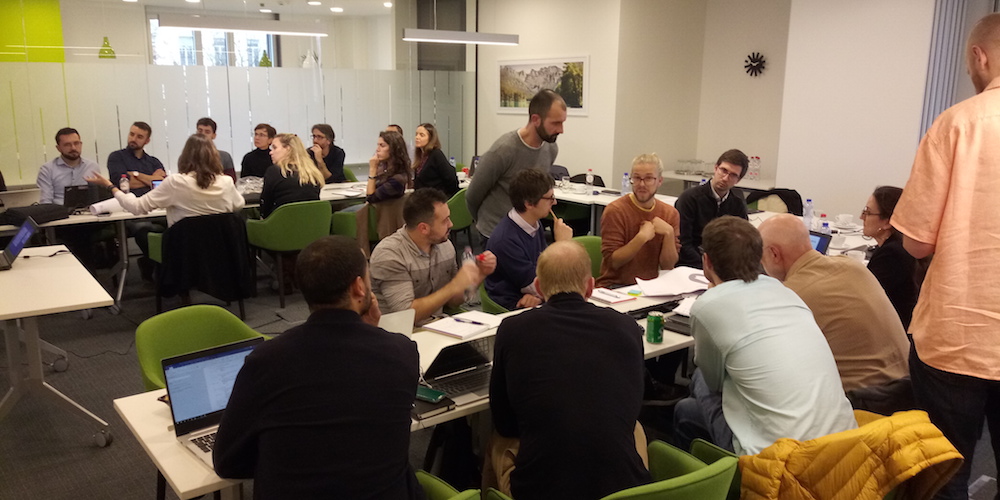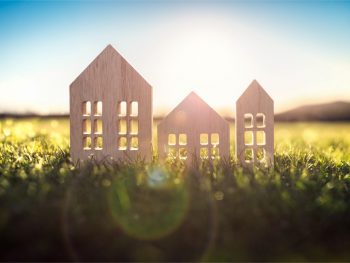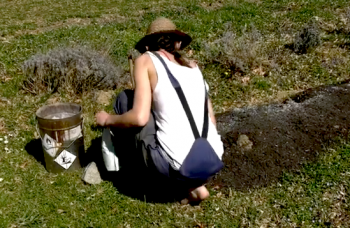Rewinding the circular tape

The third progress meeting of the HOUSEFUL project was hold in Brussels from the 27th to the 28th of November 2019: a chance for the consortium to take stock of recent progresses
Large-scale, international initiatives need periodic face-to-face meetings to exchange ideas, update partners on recent progresses and better coordinate future activities. This is why the HOUSEFUL consortium met in Brussels (Belgium) on the 27th and 28th of November 2019, hosted by project partner Housing Europe. The main results achieved so far and discussed at the meeting are as follows.
Great progress has been done on the development of the methodology to evaluate the circularity of buildings. The results obtained so far are very promising and a robust strategy including several innovative mechanisms to adapt the methodology to different regional contexts has been elaborated.

Work has also been done to launch the HOUSEFUL co-creation activities. Such activities aim to actively engage stakeholders related to the project demo-buildings. The goal is to discuss with them ideas and concerns on the proposed HOUSEFUL solutions. Preliminary consultations with said stakeholders have been carried out in past months to identify the most relevant aspects of the HOUSEFUL interventions. An internal HOUSEFUL workshop was then hold during the meeting in Brussels to explore the feasibility and importance of such aspects and select at least five ideas for each building that could be considered during the co-creation activities.
To further support the upcoming co-creation activities, HOUSEFUL recently released a call-to-action video (also available in Spanish, Catalan and German). The video invites stakeholders such as architects, construction companies, policy makers and citizens to join these activities and take the chance to share their inputs on the HOUSEFUL solutions to be implemented.
HOUSEFUL partners are also focusing on the validation at the lab scale of the project technical solutions related to waste and water. Another important activity is the study of how the equipment of the interventions could fit in the demo-buildings.

As for non-technical solutions, modelling with Building information modelling (BIM) tools is almost completed for two of the four HOUSEFUL demo-buildings. Moreover, the first complete version of the digital material passport for the “Els Mestres” demo-building in Sabadell (Barcelona area) has been finalised. The circular economy audit, which aims to assess the initial status of the project buildings in all four vectors (water, waste, energy and materials) and from the technological, social, environmental and economic point of view, is complete for two of the four demo-buildings. Finally, contacts have been taken with local administrations to define the necessary permits needed for the technology implementation in the different demo-buildings.
The HOUSEFUL plan for the environmental, economic and social assessment of the four demo-buildings has been finalised. The goal of the plan is to quantify the environmental impact, costs and social behaviour related to the implementation of the HOUSEFUL solutions.
The consortium is also developing a market entry strategy of the most promising technological and non-technological HOUSEFUL solutions as systemic services. Such strategy will facilitate the transition from the current demonstration stage to a future commercialisation phase. Over the past months, the partners have completed the first part of this strategy, consisting of a detailed analysis of the markets in the countries of the HOUSEFUL demo-buildings (Spain and Austria). The study focused on the residential sector, with particular attention to social housing. The analysis also covered four sectors that are key to the successful development of the HOUSEFUL innovative solutions: energy retrofitting, water management, as well as bio- and construction and demolition waste.
The HOUSEFUL Software as a Service (SaaS) has been further developed. The SaaS will help stakeholders in the housing sectors (such as construction companies, technological and product suppliers, design teams, municipalities, regional and national housing agencies, owners, dwellers, tenants and policy makers) make residential buildings more circular through the adoption of the HOUSEFUL solutions.
Another important milestone reached by HOUSEFUL in the past months is the launch of its Collaborative Community of Housing Expert (CCHE) Board. The goal of the CCHE is to engage additional demo-sites to replicate the HOUSEFUL approach and solutions throughout Europe. All professionals in the housing sector are invited to join the virtual CCHE by filling out this registration form.
As you can see, HOUSEFUL is growing stronger each passing month. It is thanks to initiatives such as HOUSEFUL that one day the housing sectors and hence our society will become more sustainable and circular.




